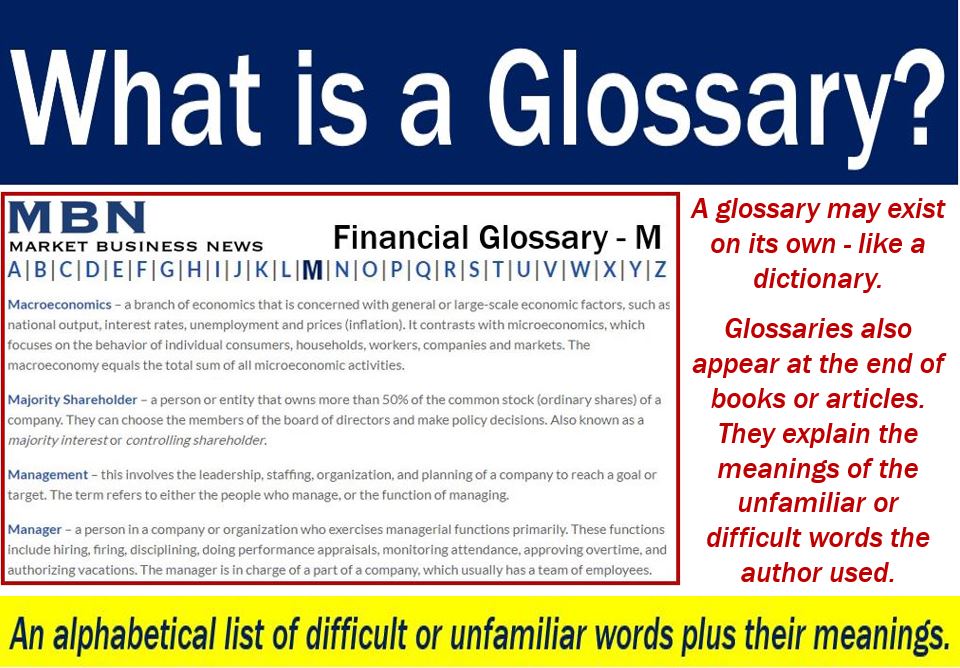A glossary is an alphabetical list of words plus their meanings. Glossaries mostly focus on a specific dialect, text, subject or theme. For example, banking glossaries focus on the meanings of words that banking people commonly use. We sometimes use the terms ‘clavis‘ and ‘vocabulary‘ with the same meaning. We also use the short-form ‘gloss.’
Glossaries also appear at the end of books or articles. They consist of alphabetical lists of words as well as their meanings. The words had appeared in the book or article.
In most cases, authors insert glossaries at the end of non-fiction books or articles. However, some fiction novels have lists of unusual or unfamiliar terms.
Bilingual glossary
For a list of terms in one language that the authors define in another language, people may say bilingual glossary.
Some bilingual glossaries have synonyms or near-synonyms of the terms in another language.
Bilingual glossaries often focus on specific terms that people use in a particular field. In fact, they are useful for learning foreign ‘jargon.’

Core glossary
Core glossaries are simple defining dictionaries that enable definitions of other concepts. They are particularly useful for people who are learning another language.
They are also useful for newcomers in a specific field or sector.
The UK’s Royal Literary Fund says that glossaries are lists of technical terms that may be unfamiliar to some readers. They may also include unfamiliar abbreviations.
When placed at the end of books or articles, glossaries appear before the bibliographies. A bibliography is a list of the books and articles that the author used, i.e., a list of sources.
The Royal Literary Fund is a British charity that has been helping authors for over 200 years (since 1790).
